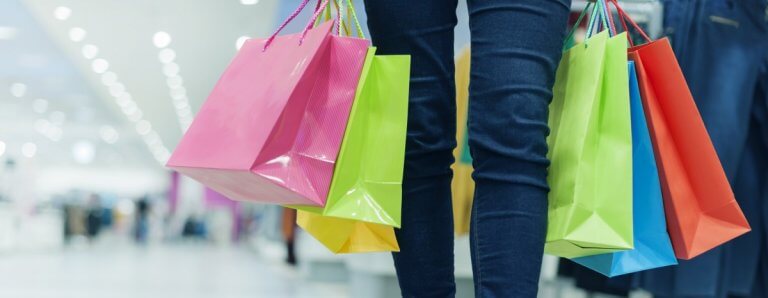
A note upfront: This definitely falls under the list of things you should NOT do as a student in a foreign country.
Molder Sayrao first arrived in Australia in 2014 to study at Macquarie University. Soon after, relatives and friends started sending requests to ship Australian products back home. Vitamins, skincare, baby formula.
“In the beginning, I sold Blackmores and Swisse, then after a couple of months I started to get some different brands. Sometimes they send me a screenshot requesting certain items,” she said, as reported by The Daily Telegraph.
“Once they received the stuff they bought from me they showed their colleagues on (social media app) WeChat, and also sent my barcode number so they can scan my account and talk to me directly.”
Today, it’s a roaring business serving more than 1,500 regular customers and shipping close to 1,000 parcels to China every week. Each parcel contains four to five items and rakes in a profit margin of AU$1,600-1,700. In a year, that adds up to nearly AU$90,000, all from just a side business.
Products for mothers and babies are the best-sellers, according to the personally shopper, which is termed “daigou” in Chinese. (Daigou translates to “buying on behalf of”).
Some of the examples include milk powder, baby nappies, and also some baby care products like baby cream for after shower use.
Will we see daigous in Canada? Chinese personal shoppers create a new retail format in Australia
– via @abcnews https://t.co/upCoHP1Odn pic.twitter.com/GJjR8TUNyk— Simon Somogyi (@AggieSomogyi) November 7, 2017
Lucrative as it is, hoarding stuff from the country you’re studying in to sell back home on WeChat or Weibo is a controversial practice.
9News notes that it’s angered Australian consumers who often find supermarket shelves stripped of baby milk formula even after the store’s just opened or having to race with these personal shoppers to get these products first. At some supermarkets, chemists and pharmacies, there are now measures in place to prevent the bulk-buying of baby formula.
With an estimated 80,000 daigou in Australia making a profit to the detriment of locals, it’s not hard to see why there is anger, though some retailers are partnering with them in hopes of bringing some order to the unregulated and probably slightly illegal market trade.
AuMake is the country’s first dedicated daigou retailer. At its first “daigou hub” in Sydney’s Haymarket, local suppliers can meet and connect with the personal shoppers. They have opened in six locations in Sydney as well, including the flagship store at George Street.
AuMake chairman Keong Chan has previously said he hoped to bring some order to the grey market trade, which has been marked by scenes of Chinese shoppers stripping supermarket shelves of products like baby formula, to the outrage of mothers.
Sayrao said: “In the beginning I used to buy from Chemist Warehouse, (but) AuMake they have enough stock and the really important thing is they have people who can package and parcel for you.”
“You can just bring stock and give it to them, they can do all the parcels. For me that’s really relaxing — baby formula is really heavy.”
There’s even an industry body seeking to regulate the trade now.
The Australia China Daigou Association calls itself a professional body to promote cooperation and understanding between daigous and Australian businesses.
Australia’s first Daigou Hub, a fascinating retail model connecting suppliers with China 🇨🇳 📱 gaining momentum in Oz @SBSNews pic.twitter.com/xH8LagAbBo
— Hannah Bowers (@Han_Bowers) March 8, 2018
Today, the daigou trade has an estimated market value of AU$300 million dollars, supported by the legions of students, tourists and mothers buying Australian products on behalf of their Chinese customers.
There’s a reason behind this huge demand. Forbes wrote kangaroos and beaches aren’t the only things Chinese citizens envision when they think of Australia. Instead, they see a healthy nation fueled by nutritious food. China, on the other hand, is plagued by the problem of questionable food products like melamine-adulterated infant formula, rat-meat dressed as lamb and even counterfeit liquor.
Price could be a factor too. When it comes to baby formula, 9News notes tins of baby formula are sold between AU$20 and AU$23 in Australia, whereas in China they are between AU$70 and AU$90.
*AU$1 = US$0.79 at the time of writing
Liked this? Then you’ll love these…
Australia wants to welcome more foreign students – minister
Even without ‘457’ visa, Chinese, Indians continue flocking to Australian unis







